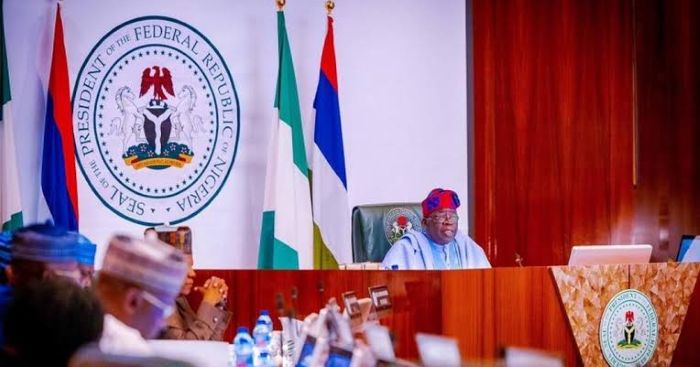“Nigeria First” Policy wins Manufacturers’ applause, say execution key to Industrial Revival

In what industry leaders are hailing as a bold and long-overdue move, the Federal Government’s newly announced “Nigeria First” policy directive has earned resounding approval from the Manufacturers Association of Nigeria (MAN). The policy, which aims to make locally produced goods the default option in government procurement, signals a potentially transformative shift for Nigeria’s beleaguered manufacturing sector — but manufacturers are cautioning that execution, not just intention, will be the real test.
Mr. Segun Ajayi-Kadir, Director General of MAN, described the policy as a “cheering development” and “long-awaited relief” for Nigerian manufacturers who, despite a hostile economic environment marked by erratic power supply, foreign exchange volatility, and weak infrastructure, have remained resolute in their commitment to local production.
According to Ajayi-Kadir, the policy — soon to be formalised via an Executive Order — represents a powerful vote of confidence in Nigeria’s industrial base. “By giving preference to locally produced goods and services, the country can stimulate demand, increase capacity utilisation, and attract investments into the manufacturing sector,” he said.
A Policy with Promise — and Pressure Points
Under the proposed directive, the Federal Government and all its agencies would be barred from procuring foreign-made goods that are already manufactured locally — unless there’s a clear and defensible justification. On paper, it’s a patriotic pivot toward import substitution. In practice, it’s a high-stakes test of industrial policy, procurement discipline, and political will.
Ajayi-Kadir emphasised that with the government being the largest consumer in the Nigerian economy, it must lead by example to drive demand for local content. “This move can send the right signal to the marketplace and help rebuild consumer confidence in Nigerian-made products,” he asserted.
He backed up his optimism with data from MAN’s internal survey, projecting that effective implementation of the policy could boost Nigeria’s GDP by as much as 56%, cut unemployment by 37%, and raise firms’ employment intent from 1.5% to 22.6%. Such projections, though ambitious, are a rallying cry for policymakers to transform intent into actionable frameworks.
Execution: The Missing Link in Nigeria’s Industrial Journey
Nigeria’s economic history is littered with well-crafted policies that withered under the weight of poor implementation. From the Industrial Revolution Plan to various local content initiatives, the challenge has often been the same: a lack of coordination between government ministries, policy inconsistency, weak enforcement, and pervasive corruption in procurement processes.
Ajayi-Kadir is urging government to back the policy with more than just good intentions. “All government contracts should prioritise local content. The military, police, and even the Presidency must wear, drive, build, and operate Nigerian,” he said pointedly.
He also called for institutional collaboration — a core tenet of successful industrial policy globally. “Government must consult manufacturers on the road to implementation. Policies work better when the people who are meant to benefit from them are part of the design and roll-out,” he noted.
A Moment of Opportunity for the Private Sector
Beyond government, MAN is calling on the private sector and individuals to embrace the Nigeria First principle. “This is not just about buying local; it’s about building national economic resilience,” Ajayi-Kadir said, stressing that value chains, jobs, and innovation can all flourish under a regime that prioritises domestic enterprise.
Industry watchers note that this could be the inflection point the Nigerian manufacturing sector has waited decades for. With rising global trade protectionism, a weak naira, and a population of over 200 million with growing consumer needs, the time is ripe for local industries to reclaim ground lost to imports.
But the manufacturing sector itself must rise to the occasion — improving product quality, enhancing customer service, investing in R&D, and working to shift public perception around locally made goods. The burden of proof no longer lies only with government.
Bottom Line: Nigeria First, or Just First Draft?
The “Nigeria First” policy directive is a promising blueprint for industrial renewal, but it must move swiftly from applause to action. For Nigerian manufacturers, the stakes could not be higher. If implemented with sincerity, the policy could unlock new growth frontiers, deepen local supply chains, and bring industrial dignity back to the economy.
However, if it’s reduced to another feel-good slogan without enforcement, Nigeria risks missing yet another opportunity to build the economic engine it so desperately needs.
Analysis:
This is a seminal moment for Nigerian manufacturing — a policy push that, if executed with discipline and transparency, could reverse decades of deindustrialisation and import dependence. The government must now develop a detailed execution framework, including transparent procurement guidelines, monitoring mechanisms, and stakeholder consultations. More importantly, it must demonstrate visible, symbolic leadership — by placing local goods at the heart of government procurement, from uniforms to vehicles to office equipment. Anything less would turn a golden opportunity into another missed milestone.












